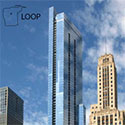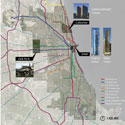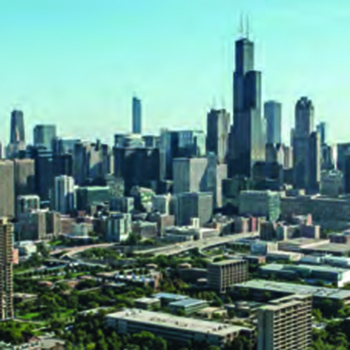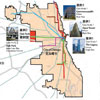Filter by
You must be a CTBUH Member to view this resource.
The Legacy at Millennium Park
Building
Completed, 2010
60603
residential
concrete
249.3 m / 818 ft
73
1
356
453
7
99,649 m² / 1,072,613 ft²
You must be a CTBUH Member to view this resource.
You must be a CTBUH Member to view this resource.
Usually involved in the front end design, with a "typical" condition being that of a leadership role through either Schematic Design or Design Development, and then a monitoring role through the CD and CA phases.
The Design Engineer is usually involved in the front end design, typically taking the leadership role in the Schematic Design and Design Development, and then a monitoring role through the CD and CA phases.
The Design Engineer is usually involved in the front end design, typically taking the leadership role in the Schematic Design and Design Development, and then a monitoring role through the CD and CA phases.
Material Supplier refers to organizations which supplied significant systems/materials for a building project (e.g. elevator suppliers, facade suppliers, etc).
You must be a CTBUH Member to view this resource.
Usually involved in the front end design, with a "typical" condition being that of a leadership role through either Schematic Design or Design Development, and then a monitoring role through the CD and CA phases.
Usually takes on the balance of the architectural effort not executed by the "Design Architect," typically responsible for the construction documents, conforming to local codes, etc. May often be referred to as "Executive," "Associate," or "Local" Architect, however, for consistency CTBUH uses the term "Architect of Record" exclusively.
The Design Engineer is usually involved in the front end design, typically taking the leadership role in the Schematic Design and Design Development, and then a monitoring role through the CD and CA phases.
The Design Engineer is usually involved in the front end design, typically taking the leadership role in the Schematic Design and Design Development, and then a monitoring role through the CD and CA phases.
The main contractor is the supervisory contractor of all construction work on a project, management of sub-contractors and vendors, etc. May be referred to as "Construction Manager," however, for consistency CTBUH uses the term "Main Contractor" exclusively.
Material Supplier refers to organizations which supplied significant systems/materials for a building project (e.g. elevator suppliers, facade suppliers, etc).
Study on Sustainability Implications of Urban + Suburban Location
1 February 2014 - CTBUH Research
CTBUH Releases Tallest Buildings Completed in 2010
31 December 2010 - CTBUH Journal

17 October 2016 | Chicago
Dense Downtown vs. Suburban Dispersed: A Pilot Study on Sustainability
This research is focused on quantitatively investigating and comparing the environmental and social sustainability of people’s lifestyles in terms of embodied energy, operational energy use,...

02 June 2017
Dense Downtown vs. Suburban Dispersed: A Pilot Study on Urban Sustainability
Antony Wood & Peng Du, Council on Tall Buildings and Urban Habitat
This paper presents the initial findings of a ground-breaking two-year CTBUH-funded research project investigating the real environmental and social sustainability of people’s lifestyles in a...
The Legacy at Millennium Park is a residential tower that rises from the heart of Chicago’s Loop while seamlessly interacting at street level with the fabric of its landmark neighborhood. The tower maximizes its urban site, incorporating 356 residences and associated amenities with academic space for the School of the Art Institute of Chicago (SAIC), expanded athletic facilities for the century-old University Club, retail, and residential parking.
The building site is within the Jeweler’s Row Historic District, surrounded by landmark buildings. The development restored the façades of three vacant six-story buildings on the site, and incorporates them into the base of the tower. The Legacy lobby is within the SAIC building and the parking entrance is through the façades on Wabash. The project effectively and thoroughly integrates itself into its existing ground plane context. Building setbacks above the façades allow the Legacy to fit with its small-scaled neighbors. A portion of the tower cantilevers over a private alley on the east side to accent the slender profile of the building from the park and augment the lakefront views to the north and south.

17 October 2016 | Chicago
Dense Downtown vs. Suburban Dispersed: A Pilot Study on Sustainability
This research is focused on quantitatively investigating and comparing the environmental and social sustainability of people’s lifestyles in terms of embodied energy, operational energy use,...

17 September 2014 | Chicago
It is widely accepted that the concentration of people in denser cities – sharing space, infrastructure, and facilities – offers much greater energy efficiency than...

02 June 2017
Dense Downtown vs. Suburban Dispersed: A Pilot Study on Urban Sustainability
This paper presents the initial findings of a ground-breaking two-year CTBUH-funded research project investigating the real environmental and social sustainability of people’s lifestyles in a...

17 October 2016
Dense Downtown vs. Suburban Dispersed: A Pilot Study on Urban Sustainability
This paper presents the initial findings of a ground-breaking two-year CTBUH-funded research project investigating the real environmental and social sustainability of people’s lifestyles in a...

16 September 2014
It is widely accepted that the concentration of people in denser cities – sharing space, infrastructure, and facilities – offers much greater energy efficiency than...

01 May 2011
The High Life: Residential Towers in Central Business Districts
These buildings serve growing segments of the population who desire amenity-rich lifestyles and safe urban homes. They serve cities that desire significant real estate tax...

31 December 2010
Tallest Buildings Completed in 2010
In a year dominated by news coverage of the new “World’s Tallest Building” – Burj Khalifa, Dubai – one may be surprised to learn that,...
1 February 2014
CTBUH is conducting a research study aimed at understanding the contributing factors of “sustainability” in both urban and suburban contexts.
31 December 2010
In a year dominated by news coverage of the new “World’s Tallest Building” – Burj Khalifa, Dubai – one may be surprised to learn that, besides being the year in which a building first surpassed the 600, 700, and 800-meter thresholds, 2010 has seen the completion of more skyscrapers than any previous year in history.
21 October 2009
Attendees of the 2009 CTBUH Chicago Conference toured The Legacy at Millennium Park, one of the newest addition to the downtown loop area residential stock.
5 July 2009
CTBUH members toured many of the extensive Chicago skyscrapers as part of the Chicago Skyscrapers Summer Tour Program.
Subscribe below to receive periodic updates from CTBUH on the latest Tall Building and Urban news and CTBUH initiatives, including our monthly newsletter. Fields with a red asterisk (*) next to them are required.
View our privacy policy